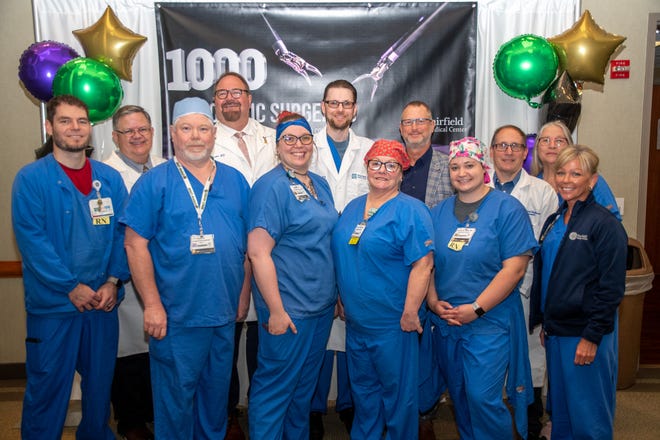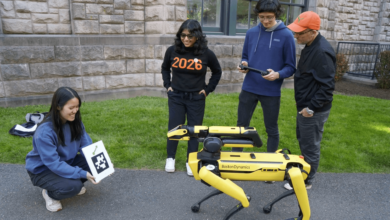Fairfield Medical Center celebrates 1,000 robotic surgeries

LANCASTER – Fairfield Medical Center successfully completed its 1,000th robotic surgery recently using the da Vinci XI Surgical System, which was acquired by the organization in 2022 and is one of two cutting-edge devices that make up the organization’s robotic-assisted surgery program.
It is extremely exciting to be part of such an amazing opportunity to provide advanced surgical care for our community and surrounding counties,” said FMC Surgery Director Jeff Collins in a news release. “This technology gives our surgeons the ability to use their skills in different ways to improve the patient’s outcomes and allow patients to regain a life balance much sooner. I am grateful to be part of this program, and to work alongside our exceptional surgeons and operating room staff. All of them have been amazing ambassadors for this program.“
During a robotic-assisted procedure, the surgeon remains in the operating room with their patient, seated nearby at a specially constructed console. Looking through a viewfinder, the physician sees magnified, high-definition 3D images of their surgical field, then uses a set of controls to manipulate the robotic arms as though these were an extension of their own hands. Dr. Scott Johnson, MD, of Fairfield Healthcare Professionals General Surgery River View, said the enhanced optics with separate right and left eye lenses allow for better visualization than traditional laparoscopy, while the hinged instruments allow movement that is more precise and versatile than the human hand.
“While robotic surgery is new to FMC, it has been changing the surgical landscape since 2000,” said Dr. Johnson, who is also director of the robotics program at FMC. “The new graduating surgeons are trained in robotic technology more than traditional laparoscopy, so FMC’s investment in a robotic surgery program was vital for the recruitment of new surgeons.”
More than 30 procedures, from hernia repairs to heart and lung surgery to biopsies, can be done at Fairfield Medical Center with the da Vinci or the ION Endoluminal System, a second robotic device that uses CT mapping and shape sensing technology to perform complex lung procedures. Dr. Johnson said robotic-assisted surgery benefits the patient in many ways. “Smaller incisions and less tissue trauma translates into less post-operative pain and a faster return to work than open surgery,” he said.
Talk to your healthcare provider if you have questions or think you may benefit from robotic-assisted surgery. To learn more about the technology and how it works, visit fmchealth.org/services/surgery-care/robotic-assisted surgery/.



